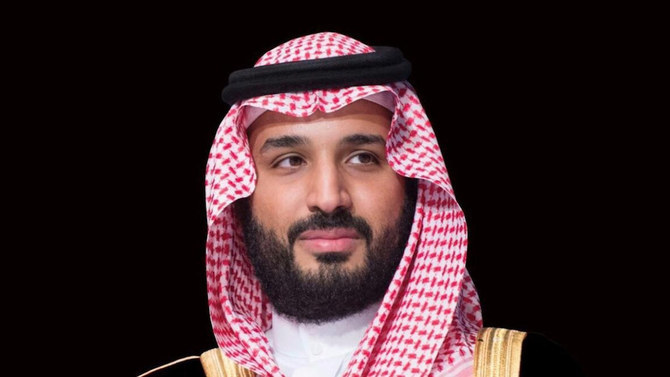RIYADH/JEDDAH: Saudi Arabia's Crown Prince Mohammed bin Salman on Monday said that the Saudi economy is expected to get SR27 trillion in government spending and investments by 2030 as the Kingdom plans to be among the top 15 global economies.
The Kingdom will invest more than SR12 trillion ($3.2 trillion) by 2030 to spur local economic growth, while the economy will receive SR10 trillion through government spending over the next 10 years and a further SR5 trillion from private consumption spending in the same period.
This represents a total injection of SR27 trillion ($7 trillion) by 2030, he added in a statement carried by Saudi Press Agency.
The funds are part of the National Investment Strategy (NIS), a key enabler to achieve the goals of the Vision 2030, he added. The NIS will target key sectors such as manufacturing, renewable energy, transport and logistics, tourism, digital infrastructure, and health care, the statement said.
Another goal of the strategy is positioning Saudi Arabia among the top ten economies on the Global Competitiveness Index by 2030, the crown prince said.
The crown prince highlighted that out of the SR12 trillion the Shareek program initiatives will inject SR5 trillion, the Public Investment Fund is set to contribute SR3 trillion, and the remaining SR4 trillion will come from investments facilitated by the NIS.
Today, the Kingdom embarks on a new investment era to empower Saudi and international private-sector investors with more and better opportunities. Investment is without a doubt one of the main routes for us to achieve the ambitions and aspirations of Vision2030, among them economic development, diversification and sustainability; technology transfer and localization; infrastructure development; better quality of life; job opportunities and the upskilling of our human resources, leaving a legacy of prosperity for future generations
Saudi Arabia's Crown Prince Mohammed bin Salman
The strategy will contribute to the growth and diversification of the Kingdom’s economy, which, in turn, will achieve many of Vision 2030’s goals, including raising the private sector’s contribution to GDP to 65 percent while increasing the contribution of foreign investments to GDP to 5.7 percent, the crown prince said.
In addition, NIS will see the share of non-oil exports in the Kingdom’s GDP rise from 16 percent to 50 percent, and reduce the unemployment rate to 7 percent, he added.
I congratulate my colleagues from @MISA, other government agencies & private institutions, whose joint endeavors contributed to developing our #National_Investment_Strategy. Your contribution to building a prosperous economy following #SaudiVision2030 will forever be remembered.
— خالد الفالح | Khalid Al Falih (@Khalid_AlFalih) October 11, 2021
"Today, the Kingdom embarks on a new investment era to empower Saudi and international private-sector investors with more and better opportunities. Investment is without a doubt one of the main routes for us to achieve the ambitions and aspirations of Vision2030, among them economic development, diversification and sustainability; technology transfer and localization; infrastructure development; better quality of life; job opportunities and the upskilling of our human resources, leaving a legacy of prosperity for future generations,” he said in the statement.
"We will continue to work towards a bright future, enhanced by a diversified and sustainable economy, and this strategy is one of the tributaries formed to achieve this."
The crown prince indicated that investment constitutes an essential and pivotal element in the system of economic growth and sustainable development under the umbrella of the Kingdom's Vision 2030.
The strategy aims to raise net foreign direct investment flows to SR388 billion annually, and increase domestic investment to reach about SR1.7 trillion annually by 2030.
By achieving these goals, it is expected that the investment-to-GDP ratio of the Kingdom will rise from 22 percent in 2019 to 30 percent in 2030, which will contribute to the growth of the Saudi economy to become one of the 15 largest economies in the world.
Mohammed Al Suwayed, CEO of Razeen Capital said: “There is no details so far on what's the government spending gonna be at, but the numbers are too big, It's very ambitious.”
“The impact is from the additional spending, and the additional spending is not coming from the government this time, it is coming from the private sector," he added.
























